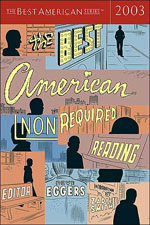[Transcribed discussion of “Opportunity Knocks,” by Paul Reyes, published in Virginia Quarterly Review.
In this nonfiction investigation of the American housing market, the author follows Max Rameau, a self-appointed “home liberator” who leads a crusade in Miami’s Little Haiti to move homeless families into vacated houses. Usually the result of foreclosures, the abandoned houses are the property of the bank and therefore not legally habitable; yet Max and his followers believe that houses should not be sitting empty when the demand for housing is so high.
After a face-off at the site of a bank seizure between a displaced family, a bank liaison, and a throng of activists and journalists, emotions are mixed from parties involved: the displaced family is relieved but unnerved, Max is satisfied but unfulfilled, the police and the bank are resigned but watchful. The author raises questions about the non-intuitive, non-humanist way that banks manage vacated properties, but also raises questions about the efficacy of street-level, grassroots methods of addressing the problem.]
Michelle: It’s sometimes aggravating to read a piece of journalism that doesn’t follow a logical chain of events, but I felt that by using Max’s story as a foundation, this piece was a lot easier to follow.
Elise: Nothing ever loses points with me if it’s “not journalistic enough.” If it’s too fact-driven, too numbers-driven, I’m not going to get into it, but since we get to see what’s going on in Max’s head, I don’t mind it.
[The students were asked if the author chose an angle that kept their interest.]
Elizabeth: Abandoned houses have a certain natural appeal. The idea of a place that has been vacated and what happens after that is really interesting.
Elise: The first scene where Max and the author are scouting out abandoned houses was a good decision. By approaching the subject from the angle of a person who is passionate about his goal, I was more receptive to the larger story, the reality of the current housing situation.
Emma: I’d never heard of liberating houses; I thought it was an interesting angle to take. It was a good way to point out the flaws of the foreclosing process and the injustice experienced by certain families.
Adam: I thought the events on the last page were the most interesting part of the story. Even though he was worn out from his constant struggling with banks, Max had a vision, a hope, and we got to see that. I wanted to hear what would happen with Max and his houses after the story ended.
[The students were asked if they thought Max’s method of confronting the housing problem was effective.]
Elise: He went into that issue a little. The author spoke about how small of an effort this was, and that even with the community’s support they didn’t seem to have the sway needed to bring about change.
Michelle: There’s this point in the article where the narrator asks the question, “What’s the point?” None of the logic used by the parties involved makes sense. Max sees that, and that’s what he’s acting on.
Subscribe to:
Post Comments (Atom)









No comments:
Post a Comment